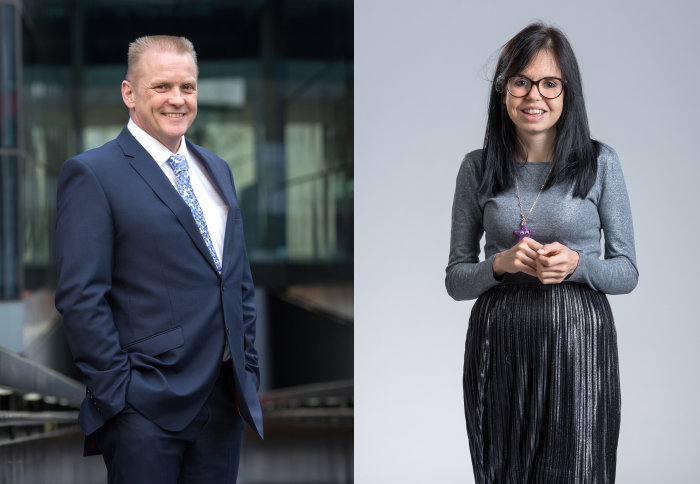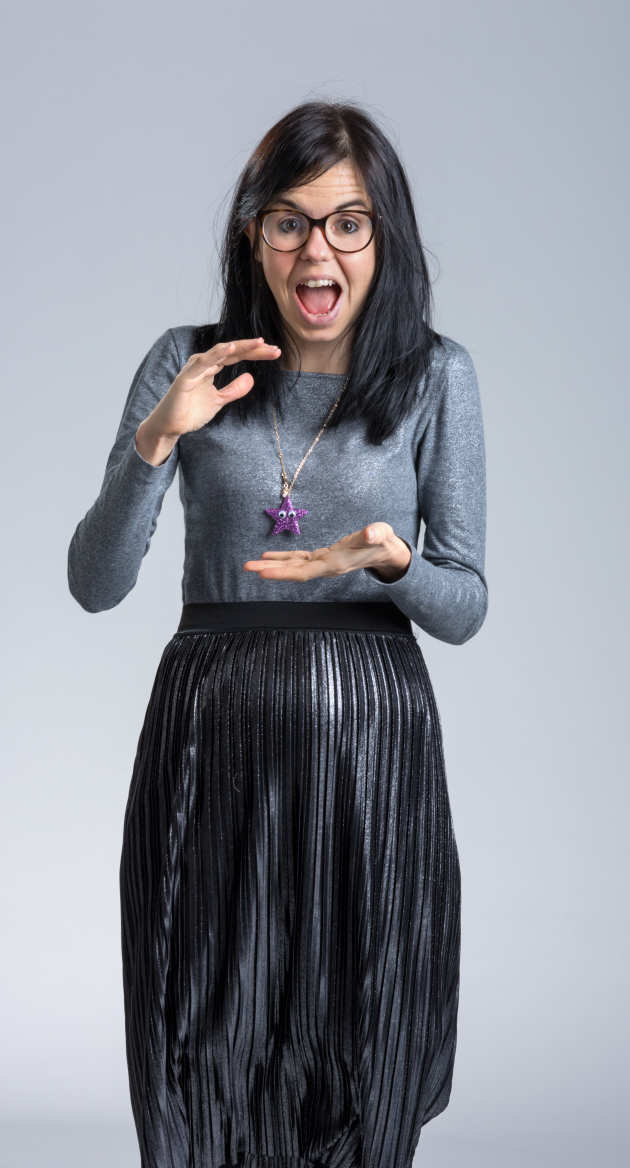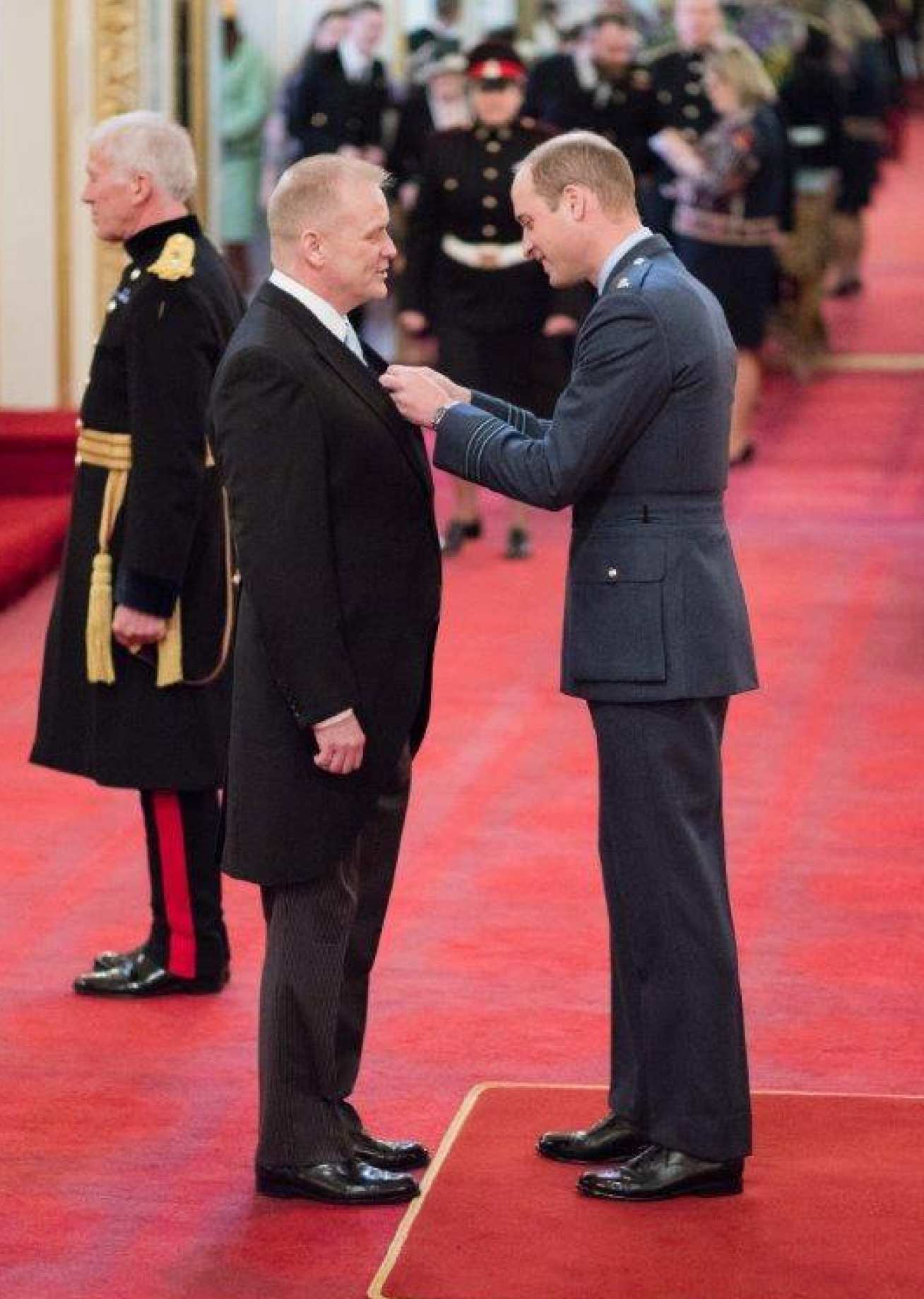Professor Tom Welton and Dr Jess Wade discuss women and diversity in STEM
by Dan Warren

After The Guardian featured her efforts to get female scientists noticed, Jess Wade’s perspective has been much in demand.
Dr Jess Wade (MSci Physics 2012, PhD 2016) is an Imperial alumna and a postdoctoral research associate in the solid-state physics group at Imperial.
"The buzz is quite overwhelming right now", observed Jess as she sat down to discuss the wider issue of inclusion with Professor Tom Welton, himself a long-term champion of widening participation at Imperial.
Professor Welton's OBE was awarded specifically for his services to diversity education and as Imperial Provost, Professor James Stirling, observed at the time, the "great strides" made by the College in this area are "in no small part down to the efforts of people like Tom, who has shown exceptional leadership."
Read on for highlights from their conversation below.
"Alumni responses have been among the most lovely and encouraging, and it’s given me a real sense of 'we can do this'." Dr Jess Wade
Tom: The Guardian article on how you personally wrote 270 Wikipedia pages for female scientists has been so widely shared. How have alumni reacted?
Jess: Alumni responses have been among the most lovely and encouraging, and it’s given me a real sense of "we can do this". For example, so many men sent me their wives’ names for inclusion; women who in many cases are very influential but who have not yet been included on Wikipedia.
Tom: I know this issue really matters to our alumni. At every event or discussion I’m part of, the conversation always turns to how many women were in your class…I think the interest in diversity is growing, especially how we can encourage more young women to study STEM subjects.
Jess: Absolutely…the crowdfunding campaign I co-launched to get Angela Saini’s ‘Inferior’ onto the bookshelves of every State school in the country raised £21k in just 12 days. We only set out to raise £15,000 so that’s really positive. But I still think there’s a lot more we can do to encourage female scientists once they’ve embarked on their careers.
For example, I’d like to see is people in each department responsible for recognising women who could be recommended for awards; not top-level prizes but the kind of below-radar ones that it’s so uplifting and encouraging to be nominated for when you’re just starting out.
Also, so many more men than women are suggested to do events and talks. We’re very good here at Imperial but we need to do more outside. So, having people focussed on identifying women who might give a TED talk for example; that would be so useful.
Mentors are key
Tom: Mentors can play a useful role here too, I think, especially for under-represented groups.
Talk to almost all successful people and you’ll find they had mentors and coaching…And I don’t just mean from old farts like me; I’ve always thought the best mentors are the ones just ahead of you; those who are relevant and accessible.
 Jess: It’s certainly more useful than many of the initiatives out there which are supposed to encourage girls into science.
Jess: It’s certainly more useful than many of the initiatives out there which are supposed to encourage girls into science.
Engineering companies invest very heavily in really expensive programmes and competitions that just don’t work. Many of their efforts rely on gender clichés and none of it is evidence based. And the trouble with competitions generally is there’s only one winner; everyone else doesn’t win.
By contrast, there’s very little structural advice out there on what you actually need to study to pursue a career in science. That’s why girls and those from other under-represented groups need role models to show them the way…
Tom: People need to see others who are relevant to their own lives - people who look like them or who went to their school...
Jess: Absolutely; and we need really good teachers talking relevantly in their classrooms. The Imperial Festival is great for that, as so many teachers come along…
Tackling prejudice in the classroom is vital. For example, we know that schools putting the fewest girls forward in Physics are also the ones putting the fewest boys forward for the arts…I think it would be great to see a gender quality mark for schools, a bit like the Athena SWAN…
Making progress
Tom: We received one of the first ever gold awards in the Department of Chemistry and that’s so gratifying – especially as it’s clear that it’s not just girls who benefit from promoting gender equality.
"It matters because, in my opinion, inclusivity is the most powerful tool that we have to help our institutions be the best that they can be." Professor Tom Welton
Jess: Definitely. I know boys are on board as I’ve run Wikithons involving as many as 150 school children and when boys see how women are under represented, it infuriates them.
Tom: It’s so refreshing to see these changes in people’s attitudes. Back in the 1980s when I was a student, those of us talking about sexism, racism or homophobia were branded ‘the loony left’…Now the Royal Society holds an Out in STEM event during LGBT History month. It matters because, in my opinion, inclusivity is the most powerful tool that we have to help our institutions be the best that they can be.
Jess: We had a seminar recently and 60 people came - from as far afield as Manchester and Edinburgh. People found it really empowering to talk about their experience of being LGBTQ+ in the sciences. It felt powerful and we had a good discussion, for example on how to establish codes of conduct.
People are already taking the initiative. Someone I know who’s now at NASA produced their own guidelines on how to be a better ally. People downloaded them, and they are now on the walls of places like CERN and at Jodrell Bank; they’re used in classrooms too.
Plus it’s the little things, like seeing a rainbow sticker on a door; that can make a student feel welcome and like they belong somewhere.
A diverse and welcoming Imperial community

Tom: Universities are quite unusual I think…Like at Imperial, the community is diverse but here on campus, if you see someone who looks like they may come from Africa or the Caribbean, they probably do; British people from black and ethnic minority backgrounds are very few and far between.
Plus kids from State schools and those who grew up on housing estates, like I did, might get invited to our Summer Schools, but many don’t have the same support at home as kids from private schools or whose parents are university graduates themselves. They certainly won’t have someone at home ‘curating’ their personal statement...
It’s like a kind of salami slicing, where if you don’t come from a certain background, every little thing makes it harder to achieve something that’s already really hard.
Jess: Receiving good support going forward, when you do get in, is so important.
Who your supervisor is in your final year or for your PhD is so powerful in your career – and not everyone is good at it. Some training on how to provide that support would be useful as students present with all kinds of problems, from finances and housing to their mental health.
Also, the choices we make about where to do a PhD or a Master's are often made on the science alone. But the challenges of studying at this level can be really isolating. I say to people, meet the group members and ask yourself, is it a nice group and a friendly place? Are they welcoming when you visit? Do you feel like you can be part of that group and contribute to it? That’s what will make it a good experience.
Tom: Young people who come here do find it hard to go from being the cleverest person in their class to being part of a cohort of really clever people, who may be quite competitive. That’s tough. But even signposting those who are struggling towards the more attentive tutors can really help.
People are always telling me, five or ten years after they gradated, they really began to appreciate their time at Imperial – and their Imperial degree; how it has opened doors for them.
I want them to feel like this when they are actually here, not just after. That’s why I’m determined to keep working on being more inclusive.
Article text (excluding photos or graphics) © Imperial College London.
Photos and graphics subject to third party copyright used with permission or © Imperial College London.
Reporter
Dan Warren
Advancement